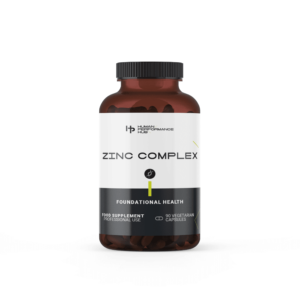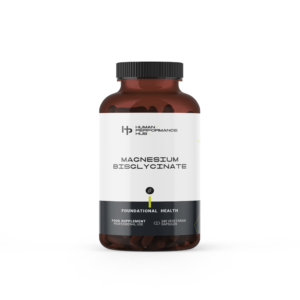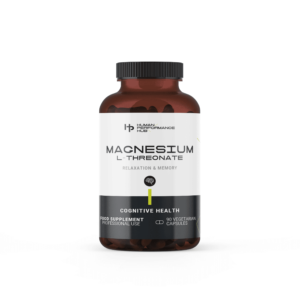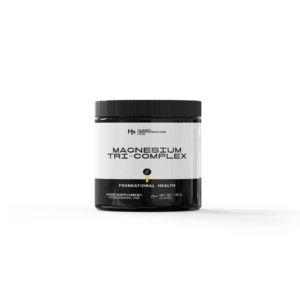Do you experience bloating, cramps, or gas? What about brain fog, allergies, skin rashes, or trouble losing weight? If so, you may have “leaky gut”, and it’s more common than you may think.
Supplementation
Detox diets, cleanses, and therapies are all the trend today. But the message isn’t new.
People have used different detoxification practices to purge the body of foreign invaders for centuries. However, the prevalence of the current detox trend reflects, in part, the ever-increasing amounts of toxins in our modern world. And we know for sure that a cumulative toxic burden, if not addressed, can lead to serious health issues.
Supplementation is the use of specific vitamins, minerals and ingredients to achieve a targeted outcome in your health and fitness. Our current environment and lifestyles mean it is hard to get everything we need from food alone, which would be ideal, and thus the targeted use of supplements can be of benefit to your health. There are some supplements that are useful for everyone to take, and this article will elaborate upon supplement basics.
The body is very highly connected and there is a link between the organs of the gut and the brain which is termed the ‘Gut-Brain Axis’. The link between the two works both ways, the gut and the things we digest can affect our brain function and similarly stresses to the nervous system can affect our gut. Research in this area originated in around 2004, and since has gained a lot of momentum in the scientific community (1), and can impact your health in numerous ways.
Ever feel fuzzy, have trouble concentrating or remembering things? How about problems sleeping or losing weight? You may have toxin overload.
Want to get rid of toxins? Feeling stressed? Not sleeping well? See why healthy methylation affects your overall health.
Read more
Excess gas, bloating, belly discomfort after eating, problems with your poop? Think it’s all in your gut? Find out more about the gut-health connection and how to improve your health.
Are you waking up tired, even after 8 hours of sleep? Always craving something sweet? Your blood sugar could be out of whack.
What are the Benefits of Magnesium and Zinc Supplements?
Most of us experience stress and anxiety at one time or another. Some of the biggest triggers are concerns about money, work, relationships, and the economy. But whatever the cause, stress can seriously affect your health with symptoms ranging from headaches, high blood pressure, and chest pain to heart palpitations, skin rashes, and loss of sleep.
But the good news is that zinc and magnesium can help minimise the adverse effects of stress in your life. Zinc and magnesium play a key role in your moods. And if that wasn’t enough, they are responsible for supporting over 300 functions in your body required for good health.
In this article, I’ll talk about the benefits of zinc and magnesium and what a deficiency in these minerals means for your health. I’ll also cover recommended levels, tips for improving absorption, and supplementation.
So, what are the benefits of Magnesium and Zinc supplements? The benefits of magnesium and zinc are plenty. These supplements are essential for growth, development, strength, sleep, mood, brain function and more. We get small amounts of zinc and magnesium in the food we consume, but often need to supplement this to really receive the benefits.
Read on to learn more about zinc and magnesium supplementation and how it benefits your body.
Zinc Supplement Benefits
Zinc is an essential trace mineral your body needs every day to stay healthy. It’s called a ‘trace’ mineral because you only need a small amount to reap the health benefits.
Why Do You Need Zinc Supplements?
Zinc appears in cells throughout your body and plays a vital role in numerous functions, including immune function, growth and development, brain health, mood and sleep, eye and skin health, and testosterone production.
Not getting enough zinc can lead to serious side effects, severely impairing the immune system function and other health problems.
Here’s why…
| Growth & development | Zinc plays a key role in the production of androgens – IGF 1 growth hormone. If you don’t have enough zinc, your muscles can’t grow, and you’ll have low energy and poor recovery. |
| Essential for absorbing nutrients | If you’re deficient in zinc, it’s more than likely you’re also deficient in other nutrients. That’s because zinc is a great organiser—it is synergistic for the absorption of all nutrients. |
| Manage insulin | If you’re deficient in zinc, your body will have a hard time storing glycogen, inducing anabolism, and your carbs will keep building fat stores. |
| Regulate dopamine production | If you don’t have enough zinc, your brain cannot function properly. You’ll have a lower attention span, more mood swings, and little drive in the gym. |
Signs of Zinc Deficiency
Common signs of zinc deficiency may include:
- Low energy
- Anxiety and depression
- Acne
- Diarrhoea
- Impaired wound healing, including eye and skin sores
- Hair loss
- Learning problems
- Low libido and impotence
- Decreased lean body mass
While true zinc deficiency is rare in the western world, mild zinc deficiency is relatively common. This is particularly true in the very young and elderly, women who are breastfeeding or pregnant, people with certain digestive problems and diseases (such as Crohn’s disease), and those on vegetarian or vegan diets.
But how do you get more zinc in your diet?
Sources of Zinc
The only way to get the zinc your body needs is through food and supplementation
The foods that contain the highest amount of zinc include:
- Certain types of seafood, such as oysters
- Red meat
- Poultry
- Nuts and seeds
- Legumes
- Unsweetened chocolate (cacao)
Magnesium Supplement Benefits
Like zinc, magnesium is an essential trace mineral. It’s also one of the most important minerals for optimal health and performance.
Why Do You Need Magnesium Supplements?
Here are just a few reasons why consuming magnesium supplements can benefit your body and your performance.
| Vital for every organ in the body | This includes the heart, muscles, kidneys and bones. It’s crucial for optimal training and everyday progress as it’s necessary for more than 300 essential metabolic functions. |
| Calms nerves and anxiety | Magnesium supplements have a calming effect on the nervous system. It’s the raw material for serotonin, the neurotransmitter that aids relaxation and well-being. |
| Deeper sleep | Magnesium is an indirect raw material for the hormone melatonin, which brings you into the deep sleep phase. Too little magnesium = no deep sleep. More magnesium = deeper sleep. |
| Improves brain function | Magnesium is essential for excellent mental performance. Supplementation with magnesium has increased brain function and improved learning and memory. |
| Increases testosterone levels | Magnesium is needed for energy metabolism as well as physical activity, and recent research shows that intake increases testosterone levels. I personally use 5 different forms of magnesium, depending on the condition and the target. |
| Synthesises protein and builds strength | Magnesium supplements support protein synthesis, as it allows a corresponding enzyme function in the body. In addition, research shows that supplementing magnesium with strength training can make you stronger. |
| Reduces inflammation | Inflammation is not only an obstacle to recovery after hard workouts but is also associated with cardiovascular disease, Alzheimer’s, arthritis and diabetes. |
| Stronger bones | You need calcium for strong bones but also sufficient magnesium and vitamin D to absorb the calcium effectively
Magnesium leads to cellular enzyme activity, which first allows the body to convert vitamin D into its active form . It then helps with the mineral intake into the bone structure. Magnesium allows for the release of the hormone calcitonin, which helps to preserve the bone structure and feeds calcium from the bloodstream and soft tissue back into the bones. |
| Optimised blood lipids and blood pressure | Magnesium deficiency has an effect on lipid metabolism and increases blood pressure. This can negatively affect arterial health and ultimately lead to arteriosclerosis. Research shows that supplementation of magnesium significantly reduces the likelihood of exercise-induced chest pain. |
| Affects mood | Magnesium is the raw material for serotonin, the neurotransmitter for relaxation and well-being. Serotonin deficiency is directly related to mood swings, depression and well-being. More magnesium = More serotonin = You feel better. |
But, to receive these benefits, the right form of magnesium supplement is crucial. Each magnesium form has other functions and is preferentially absorbed by other tissue. For example, magnesium citrate is ideal after exercise but does not have a relaxing, sleep-inducing effect. Magnesium bisglycinate is the most efficient solution to make it easier to fall asleep at night.
Signs of Magnesium Deficiency
Common signs of magnesium deficiency include:
- Muscle cramps and twitches
- Nausea and vomiting
- Loss of appetite
- Headaches and migraines
- Fatigue
- Insomnia
- Anxiety, depression, or restlessness
Sources of Magnesium
Like zinc, food and supplements are the main sources of magnesium. The highest magnesium-rich foods include:
- Dark leafy greens
- Seeds
- Beans
- Whole grains
- Nuts
- Dark chocolate
- Yoghurt
- Bananas
- Avocados
How Much Zinc and Magnesium Supplements Do You Need?
Zinc and magnesium are vitally important nutrients that play an indispensable role in your body. You need the right amount of these minerals to function properly. These are the current daily intakes for zinc and magnesium recommended by the National Institutes of Health:
- Zinc: Adults 11 mg for men and 9 mg for women (19+ years old)
- Magnesium: 400 mg for men, 310 mg for women (19-30 years old), 420 mg for men and 320 mg for women (he31+ years old)
It’s important to note that the recommended daily allowances for zinc and magnesium put forth by the National Institutes of Health are the bare minimum to prevent true deficiency. However, the amounts are inadequate for optimal health, particularly when you consider the amount of stress we battle today.
Also, some people may have issues that reduce absorption or health goals that increase the need for these minerals. But it’s not always easy to detect low zinc and magnesium levels. That’s because some of the more common symptoms are not unique. Yet, low intake of these minerals is common and linked to several conditions.
While you can absorb zinc and magnesium from dietary sources, many people do not get enough. It’s also important to remember that these minerals are not stored in the body, so you need to have an adequate amount daily.
That’s why adding zinc and magnesium supplements to your daily regimen is important to boost and maintain your levels.
Zinc and Magnesium Supplements at Human Performance Hub
Here at Human Performance Hub, we’re passionate about the benefits of proper supplementation. We only endorse and recommend the highest quality supplements from the world’s leading suppliers of dietary supplements.
We stock a range of zinc and magnesium supplements with different formulations and multivitamins containing these essential minerals.
We’re always here to help to give advice on choosing the best one for you. Please book a consultation if you want to find out more and look at your zinc and magnesium levels.
Zinc Supplements at HPH
Zinc supplements support a healthy immune function, fight free radicals to prevent infections and cancer, help maintain hormone levels and assist the body in absorbing other nutrients. Boosting zinc levels is also important for athletes who lose zinc through sweating during exercise.
Human Performance Hub Zinc Complex
This is a powerful antioxidant in the formulation of zinc chelates with other nutrients like vitamins B6 and taurine to provide superior absorption and results. Made from non-GMO ingredients.
Magnesium Supplements at HPH
Magnesium supplements help promote optimal magnesium levels in the body that are required for 300+ biochemical reactions. Human Performance Hub offers various types of magnesium, each with related benefits in cognitive, neurological, and cardiovascular functions.
Magnesium Bisglycinate UK Vegetarian Capsules (240)
Perfect if you are looking to improve your sleep and recovery. Magnesium is great because of its ability to calm the nervous system and muscular systems. Calming these is important to set you up for a good night’s sleep.
Human Performance Hub Magnesium L-Threonate
Human Performance Hub Magnesium L-Threonate uses the unique, patented, chelated mineral Magtein™ containing magnesium chelated to threonic acid (magnesium L-threonate). Its ability to get through the blood-brain barrier to transport magnesium ions to brain cells may support cognitive abilities and decrease common age-related memory decline. Made with non-GMO ingredients.
Magnesium Tri-Complex 150g Powder HPH
Magnesium Tri-Complex is a unique blend of three highly absorbable forms of magnesium. One serving provides 300 mg of elemental magnesium in an easy-to-mix powder.
This product contains three forms of magnesium that may support energy production, heart health, blood vessel function, and healthy blood glucose metabolism.* It is naturally sweetened with monk fruit and contains no stevia or artificial sweeteners.
Thank you for being part of our journey – stay tuned for more updates!
Most of us know about vitamin C as a defence against colds and flu, but it’s much more than that. The science behind this critical antioxidant shows that it’s vital for many processes in our bodies and for maintaining good health.
Products
Service
Information
Contact
info@humanperformancehub.co.uk
Returns
3c, Henley Business Park,
Pirbright Road
Guildford
Surrey
GU3 2DX














